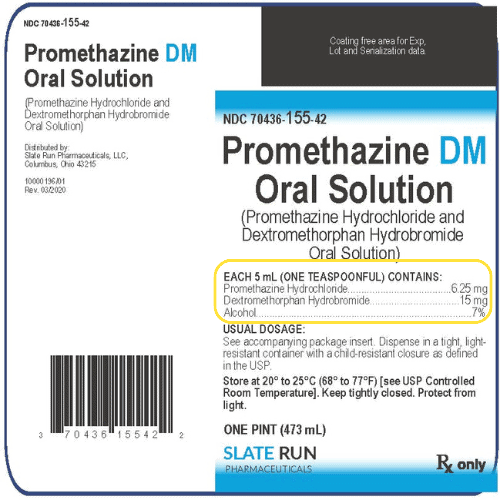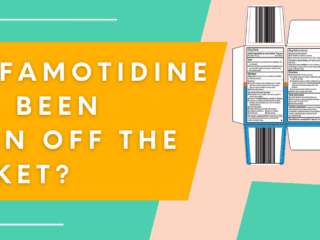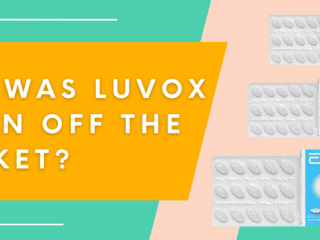Codeine is a common opioid pain medication usually used in treating cough and mild to moderate pain. On the other hand, promethazine DM is a quick go-to choice for helping with various conditions such as allergies, colds, and the flu. However, some people may be concerned as to whether or not promethazine DM contains codeine.Â
Does Promethazine DM Contain Codeine?
â Promethazine is an antihistamine that blocks the effects of the naturally occurring chemical histamine in the body.
â Dextromethorphan is a cough suppressant that affects the signals in the brain that trigger your cough reflex.
What is Promethazine DM Used For?
Promethazine DM is a combination medication that contains two active ingredients namely: promethazine and dextromethorphan.
For one, promethazine alone belongs to the class of antihistamines, which means it works by stopping the production of a certain natural substance called ‘histamine’ produced by the body often during an allergic reaction.
People generally take promethazine to prevent and treat nausea and vomiting associated with some conditions like motion sickness or before or after undergoing surgery.
Oftentimes, doctors also administer promethazine before and after surgery to help patients fall asleep or feel more relaxed.
What is Dextromethorphan Used for?
Dextromethorphan belongs to the class of medications called Antitussives. For this reason, they work by lowering activity in the part of the brain that causes coughing.
As an ingredient, dextromethorphan is present in combination with several of your cough and cold medications. People take it for their ability to temporarily relieve cough caused by the common cold, the flu, or other conditions.
Does Promethazine DM Contain Codeine?

Short answer: No. As mentioned, promethazine DM is a combination medication whose main active ingredients are promethazine and dextromethorphan.
While dextromethorphan is an analog of codeine, it, however, lacks that euphoric feeling if taken as prescribed. But once you go beyond the appropriate dose, it could affect your brain in many similar ways to illegal drugs.
Antihistamine medications like promethazine DM suppress cough but they could also make you drowsy. Codeine on the other hand can effectively treat chronic cough but doesn’t cause drowsiness. However, on no account should you take promethazine with codeine, especially if you’re under the age of 16.
Side Effects of Taking Promethazine DM
As with many medications, promethazine DM may accompany some side effects. These are some possible side effects of promethazine DM to be aware of:
- Drowsiness
- Dizziness
- Headache
- Nausea and vomiting
- Blurred vision
- Urinary retention
- Loss of coordination
- GI disturbances
Precautions to Take When Taking Promethazine DM
The Food and Drug Administration recommends this medicine only be given to children above the age of 2. Otherwise, it can lead to fatal respiratory depression, or even worse, death among children.
For the most part, promethazine DM also causes drowsiness and impairs one’s judgment and coordination. That being said, you should avoid engaging in anything physically or mentally demanding when taking promethazine DM. That includes driving or operating machinery. Plus, avoid alcohol or cannabis when taking this medicine as it can make drowsiness and dizziness worse.
The medication also tends to cause photosensitivity; making the skin more sensitive to the sun. Thus, a protective clothing or sun-screening agent will be helpful where exposure to excessive sunlight is unavoidable.
Takeaway
Promethazine DM is a popular cough suppressant and antihistamine that provides relief from allergic conditions, the common cold, and the flu. While it does contain other ingredients, it sure doesn’t contain codeine.
Keep in mind to consult with a healthcare professional if you have any questions or concerns about your medication. If your symptoms do not improve or if they get worse, make sure to call your doctor.
Disclaimer: this article does not constitute or replace medical advice. If you have an emergency or a serious medical question, please contact a medical professional or call 911 immediately. To see our full medical disclaimer, visit our Terms of Use page.







